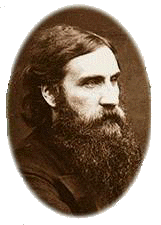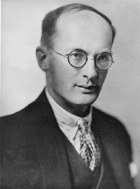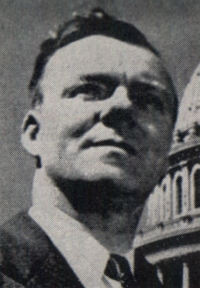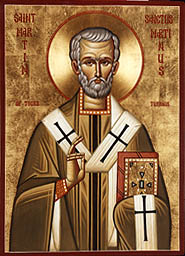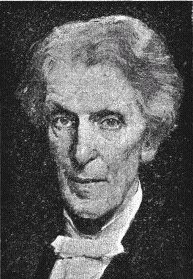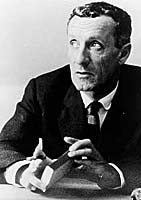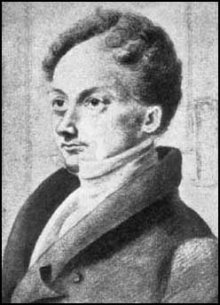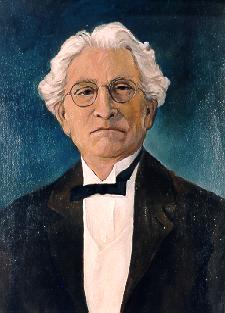- MacAlpine, John
- (1505-1577)
- Scottish Dominican
- influenced by Luther
- became Lutheran pastor in Denmark.
- Macartney, Clarence E.
- (1879-1957)
- US Presbyterian
- great topical and biographical preacher
- a conservative leader in fundamentalist-modernist controversy.
- Wrote The Greatest Texts of the Bible
- Mach, Ernst
- (1838-1916)
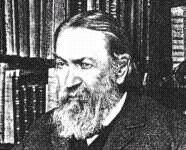
Ernst Mach
- Science professor at Graz, Prague, Vienna
- wrote Popular Scientific Lectures
- Positivist
- Naturalist
- Machen, J. Gresham
- (1881-1937)
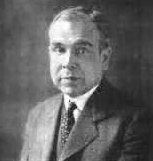
J. Gresham Machen
- Conservative US Presbyterian theologian
- taught at Princeton; left with Van Til, Allis, and Wilson to form Westminster
- defrocked for insubordination
- leading founder of Orthodox Presbyterian Church
- effectively destroyed liberalism with his book Christianity and Liberalism (1923).
- Wrote a Greek textbook, New Testament Greek for Beginners (1923), used in most Bible colleges and seminaries.
- Also wrote
- Christian Faith in the Modern World (1936)
- The Christian View of Man (1937)
- God Transcendent (1949)
- The Origin of Paul's Religion (1921)
- New Testament Introduction
- The Virgin Birth of Christ (1930)
- What is Faith? (1925)
- Mackintosh, Hugh Ross
- (1870-1936)
- Scottish theologian
- taught at New College, University of Edinburgh
- moderate liberal
- introduced German scholarship to England
- held a kenotic theory of incarnation
- against penal-substitution theory of atonement
- Maclaren, Alexander
- (1826-1910)
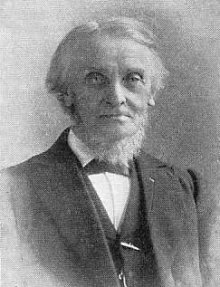
Alexander Maclaren
- British Baptist pastor
- first President of Baptist World Alliance
- Wrote After the Resurrection.
- MacLaren, Ian
-
- pseud. of John Watson
- MacLaurin, John
- (1693-1754)
- Scottish preacher
- friend of Jonathan Edwards.
- Maclean, John Jr.
-
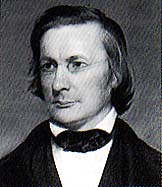
John Maclean, Jr.
- President of Princeton from 1854-68
- Macquarrie, John
-
- wrote contemporary theology book: 20th Century Religious Thought: The Frontiers of Philosophy and Theology, 1900-1970.
- MacRae, Allan
- (1902-1997)
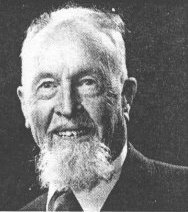
Allan MacRae
- professor at Westminster
- president at Faith Theological Seminary and Biblical Theological Seminary
- involved in Presbyterian schisms
- an editor of New Scofield Reference Bible
- helped translate NIV
- wrote The Gospel of Isaiah.
- Magnus
-
- See Albertus Magnus
- Maier, Walter A.
- (1893-1950)
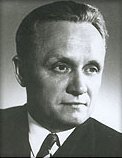
Walter A. Maier
- US Lutheran
- radio preacher on "The Lutheran Hour"
- spent one hour for every minute of his sermon
- taught Hebrew and OT at Concordia Seminary
- Malebranche, Nicholas
- (1638-1715)
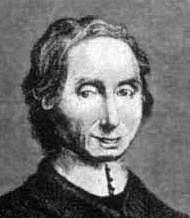
Nicholas Malebranche
- See Occasionalism
- Mani
- (c 216-277)
- Persian philosopher
- combined Persian, Christian, and Buddhist ideas to form Manichaeism a dualistic view
- Manson, Thomas Walter
- (1893-1958)
- British
- taught at University of Manchester
- emphasized on life and teachings of Jesus
- Marcel, Gabriel
- (1889-1973)
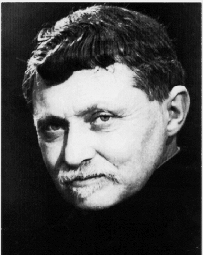
Gabriel Marcel
- French Christian existentialist philosopher
- wrote Homo Viator
- Marcion
- (c 110-c 160)
- Defined canon of Scripture
- heretic
- God of the OT is different from God of the NT
- followers called Marcionites
- MARCIONITE
-
- Those who hold that the God of the New Testament is different from the God of the Old Testament.
- Marett, Robert Ranulph
- (1866-1943)
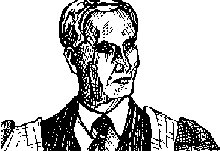
Robert Marett
- anthropology professor at Oxford
- wrote The Threshold of Religion
- origin of religion not naturalistic or metaphysical
- concentrated on a psychological analysis of religion
- Mana
- Maritain, Jacques
- (1882-1973)
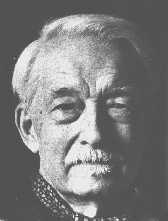
Jacques Maritain
- French philosopher
- led Neo-Thomists
- wrote
- The Degrees of Knowledge
- La Philosophie bergsonienne
- Marshall, Daniel
- (1706-1784)
- missionary to Indians
- brother-in-law of Stearns
- helped organize Georgia Baptist Association
- Martin, Samuel
- (1817-1878)
- British Congregational pastor
- built Westminster Chapel which he pastored for 37 years
- Marty, Martin
-

Martin Marty
- Lutheran edited A Handbook of Christian Theologians with Dean Peerman
- Martyr, Justin
- (c 100-165)
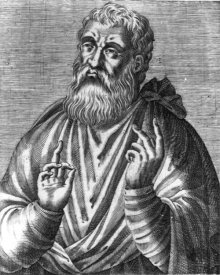
Justin Martyr
- Christian apologist
- Christianity is highest concept of Greek philosophy
- martyred in Rome (thus his name)
- Marx, Karl
- (1818-1883)

Karl Marx
- German social philosopher
- wrote Das Kapital
- used Hegel's dialectical view of history to create dialectical materialism
- father of communism
- MATERIALISM
-
- says religion is a purely psychological phenomenon.
- It is "the childlike condition of humanity."
- Consciousness of God is "self-consciousness, and knowledge of God is self-knowledge" (Feuerbach).
- Also see
- Mather, Cotton
- (1663-1728)
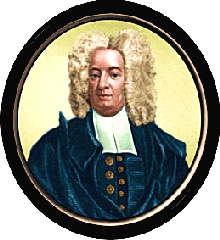
Cotton Mather
- US Congregational
- Puritan
- graduated from Harvard at age 15
- preached (in Boston) on social, political, and personal issues
- oldest son of Increase Mather
- opposed decline of Puritan Theocracy
- advocated Salem witch trials
- wrote
- Magnalia Christi Americana
- Memorable Providences Relating to Witchcraft and Possessions
- Mather, Increase
- (1639-1723)
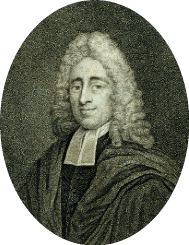
Increase Mather
- US Congregational
- son of Richard Mather
- President of Harvard
- preached 62 years in Boston
- memorized his sermons
- studied 16 hours a day
- advocated Half-Way Covenant
- wrote
- A Brief History of the Wars With the Indians
- An Essay for the Recording of Illustrious Providences
- Mather, Richard
- (1596-1669)
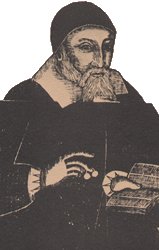
Richard Mather
- Congregational pastor
- father of Increase Mather
- ousted by Archbishop Laud
- pastor in Dorchester, Mass.
- advocated Half-Way Covenant
- wrote Bay Psalm Book.
- Matheson, George
- (1842-1906)
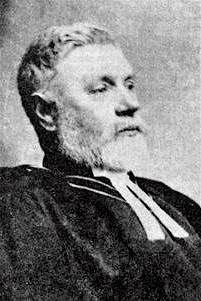
George Matheson
- Church of Scotland
- blind preacher
- wrote hymn "O Love That Wilt Not Let Me Go."
- Mathews, Shailer
- (1863-1941)
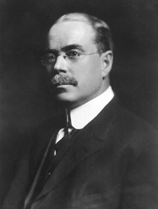
Shailer Mathews
- Baptist theologian
- taught at University of Chicago and turned it liberal
- Christianity was a religious social movement
- wrote
- Contributions of Science to Religion
- The Faith of a Modernist
- The Growth of the Idea of God
- The Social Teaching of Jesus
- Matthew, Edward
- (1813-1892)
- Welsh Calvinistic Methodist preacher
- Matthews, Mark A.
- (1867-1940)
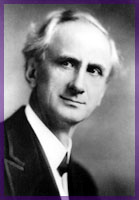
Mark A. Matthews
- US Presbyterian preacher
- fundamentalist leader
- promoted moral issues
- Maurice, John Frederick Denison
- (1805-1872)
- Anglican theologian
- taught at King's College, London
- denied doctrine of everlasting punishment
- forerunner of ecumenical movement
- friend of the workingman who began Christian Socialism in 1848
- McCheyne, Robert Murray
- (1813-1843)
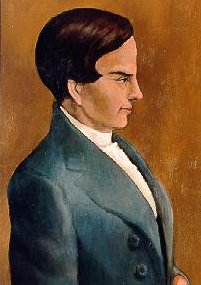
Robert Murray McCheyne
- Scottish Presbyterian pastor
- emphasized personal piety, prayer, compassion, and evangelism.
- McCosh, James
-
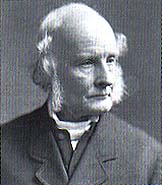
James McCosh
- President of Princeton from 1868-88
- McCracken, Robert James
- (1904-1973)
- Scottish pastor in Canada
- later succeeded Fosdick in NY
- professor of theologian and philosopher at McMaster (Ontario).
- McGavran, Donald
-
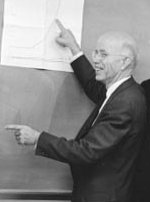
Donald McGavran
- Founder of the concept of Church Growth.
- McGiffert, Arthur Cushman
- (1861-1933)
- Church historian at Union (NY)
- promoted liberalism
- scientific history which excludes the supernatural is more objective than one which allows for divine involvement
- advocated social gospel
- McIntire, Carl
- (1906-2002)
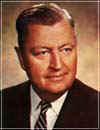
Carl McIntire
- founded Faith Theological Seminary and Shelton College
- involved in Presbyterian schisms
- founded American Council of Christian Churches to oppose National Council of Churches and the International Council of Christian Churches to oppose World Council of Churches
- supported Vietnam War
- McPherson, Aimee Semple
- (1890-1944)

Aime Semple McPherson
- Pentecostal woman preacher
- founded International Church of the Foursquare Gospel
- McTaggart, John McTaggart Ellis
- (1866-1925)
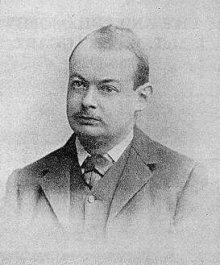
John McTaggart
- Taught at Trinity College, Cambridge
- wrote
- Some Dogmas of Religion
- The Nature of Existence
- pluralistic Personal Idealist
- emphasized individual minds, not one great mind
- like G. Howison
- MECHANISM
-
- Evolution is the product of continuous physico-chemical action.
- A living organism is defined as a complex system of physico-chemical mechanisms.
- Meinong
- (1853-1920)
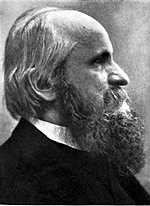
Meinong
- Austrian philosopher who worked at the University of Graz.
- He was a pupil of Franz Brentano and is most famous for his belief in nonexistent objects
- Melanchthon, Philipp
- (1497-1560)
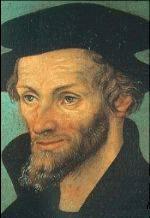
Philipp Melanchthon
- German reformer
- influenced by Erasmus
- followed Luther
- systematized and defended Luther's theology
- wrote first protestant systematic theology Loci Communes
- tried reconciliation with Reformed and Catholics turned Lutheranism from "Calvinism" to "Arminian"
- MELCHIORITES
-
- Anabaptist followers of Mehior Hoffmann
- Melville, Andrew
- (1545-1622)
- Successor to John Knox
- Melville, Henry
- (1798-1871)
- Anglican pastor who wrote his sermons out several times before preaching them.
- MENNONITES
-
- a radical Reformation group started by Menno Simons.
- See the Anabaptists with whom they share some distinctive characteristics.
- METAETHICAL RELATIVISM
-
- When there is moral disagreement, both views may be correct.
- Also see Ethical relativism
- METAETHICS
-
- An attempt to analyze or describe the ways in which moral judgments are actually used.
- May be distinguished as cognitivist ethics or non-cognitivist ethics.
- See Metaethical relativism
- METAPHYSICAL DETERMINISM
-
- see Hard Determinism
- METAPHYSICS
-
- The theory of first principles or, as synonymous with ontology, the theory of being as such.
- METHODOLOGICAL RELATIVISM
-
- There are no rational ways of settling moral disputes.
- Nothing can be proved in ethics.
- Meyer, Frederick Brotherton
- (1847-1929)

Frederick Brotherton Meyer
- British Baptist preacher
- crusaded against public vices
- wrote 70 books
- Mill, John Stuart
- (1806-1873)

John Stuart Mill
- philosopher
- utilitarian ethics
- greatest good for the greatest number.
- Wrote Examination of Sir William Hamilton's Philosophy.
- Ideas such as matter and causality are admitted if interpreted phenomenalistically, as, e.g., "possibilities of sensation."
- Knowledge of God is possible as an inference from knowledge of the world (from sense data).
- The uniformity of nature makes possible knowledge of a world as cause of sense data.
- "Matter is the permanent possibility of sensation."
- Reality is not an independent mental or material substance but a complex of actual and possible sensations.
- Material and mental entities are constructed from sense data.
- Sense data belong to a subjective mind (as in idealism) and the objective world (as in realism).
- Realism is ordered by an invariable principle of causality (determinism).
- Miller, William
- (1782-1849)

William Miller
- Baptist pastor in NY
- began Seventh-day Adventism
- said the Lord would return in 1844.
- Milton, John
- (1608-1674)
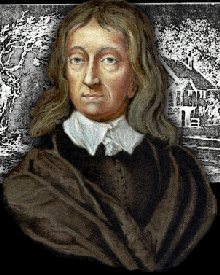
John Milton
- British Congregational Puritan
- wrote
- Areopagitica
- Paradise Lost
- in government service under Cromwell
- but forced to retire by the Restoration.
- Mohammed
- (c 570-632)
- The founder of Islam.
- He was born in Mecca, where he lived as a merchant, married Khadija, a rich widow, and had a daughter, Fatima.
- At the age of 40, he had a vision and began to preach as a prophet, exhorting the people to repentance, prayer, belief in the one god Allah, and alms-giving.
- In 622 to escape assassination he fled to Medina, where he set up a theocratic state.
- In 630 he conquered Mecca.
- He died in Medina, having established his authority throughout S. W. Arabia.
- Islam (meaning "submission") is the third and last of the world's 3 great monotheistic religions
- teaches that Jesus is only a prophet, not the Savior or a Person of the Trinity
- his revelation is written in the Koran
- claims to be final prophet from God
- followers called Muslims or Moslems
- Mohammad II
- (c1430-81)
- Ottoman sultan of Turkey (1451-81).
- His capture of Constantinople (1453) marked the end of the Byzantine Empire.
- He conquered much of the Balkans, until checked by Hunyadi and by Scanderbeg.
- Moltmann, Jürgen
- (1926-____)
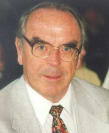
Jürgen Moltmann
- theologian at University of Tübingen
- wrote Theology of Hope
- emphasized theology of hope
- the present is to be interpreted in terms of the future
- eschatology is key to understanding theology
- MONAD
-
- A unit of metaphysical reality (spiritual for Leibniz) capable of entering into relations that comprise the world.
- MONISM
-
- All things are forms of one substance.
- Thales said that Water is the material cause of all things.
- Anaximander said that the Boundless or Infinite is the essence of all things.
- Anaximenes said that all things arise from a condensation or rarefaction of air.
- Parmenides said that Being is the one homogeneous and continuous substance.
- Heraclitus said that Fire is the universal flux or becoming of all things and the first principle of reality.
- Monod, Adolphe Theodore
- (1802-1886)
- French evangelical leader
- formed Reformed church in France
- Wrote A Dying Man's Regrets
- MONOPHYSITES
-
- A view which says that Jesus had only one nature in contrast with the Nestorians that said He was two persons with two natures.
- See Catholic Encyclopedia
- Montaigne
- (1533-1592)

Montaigne
- Deist who influenced Edward Herbert
- Moody, Dwight Lyman
- (1837-1899)
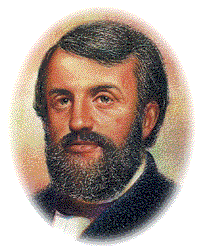
Dwight L. Moody
- US evangelist
- founded Northfield Seminary (school for girls), Mt. Hermon School (school for boys), and Chicago Evangelization Society later called Moody Bible Institute.
- Moore, George Edward
- (1873-1958)

George Edward Moore
- British philosopher
- professor at Cambridge
- New Realist
- rejected any concept of God
- emphasized analytic philosophy
- wrote
- Principia Ethica
- Philosophical Studies
- As sensibles (i.e., complexes of sense data), reality exists independent of perception, though perception renders the complexes as physical objects.
- Moorehead, William Gallogly
- (1836-1914)
- US Presbyterian
- President of Xenia Seminary
- an editor of Scofield Reference Bible
- MORAL ARGUMENT FOR EXISTENCE OF GOD
-
- Man (unlike other creatures) is a moral being.
- This morality is an imperfect reflection of God's holiness.
- Where there is a reflection, there must also be the original source.
- This source is God.
- Morgan, Conwy Lloyd
- (1852-1936)
- philosopher
- professor at Bristol
- wrote
- Emergent Evolution and Life
- Mind and Spirit
- Realist metaphysics
- Morgan, George Campbell
- (1863-1945)
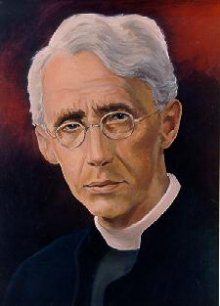
G. Campbell Morgan
- British Congregational preacher
- twice pastored Westminster Chapel
- Morgan, William
- (c1541-1604)
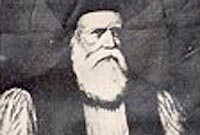
William Morgan
- Welsh bishop and Bible translator
- first to translate Bible into Welsh
- Morris, Ebenezer
- (1769-1825)
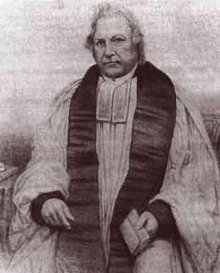
Ebenezer Morris
- Calvinistic Welsh Methodist
- son of David
- Morrison, Charles Clayton
- (1874-1966)
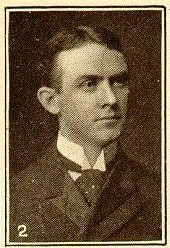
Charles Morrison
- US Disciples of Christ
- founded Christian Century magazine
- Morrison, George Herbert
- (1866-1928)
- Scottish Presbyterian pastor
- assisted Alexander Whyte
- Mott, John Raleigh
- (1865-1955)
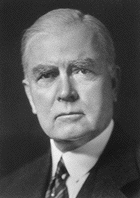
John Raleigh Mott
- US church leader (Methodist layman)
- ecumenical leader
- general secretary of YMCA
- Mühlenberg, Henry Melchior
- (1711-1787)
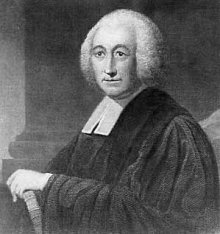
Henry Mühlenberg
- US Lutheran pietistic pastor
- reformed Lutheran Synod in America.
- Müller, George
- (1805-1898)
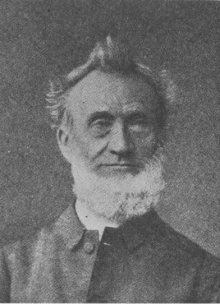
George Müller
- Plymouth Brethren
- founded faith orphanage in Bristol, but never solicited contributions for it
- influenced by Pietist A. H. Francke
- MULTIPLE CAUSE
-
- J. S. Mill said that cause is "the sum total of the conditions positive and negative taken together which being realized, the consequent invariably follows."
- Münzer, Thomas
- (c1489-1525)
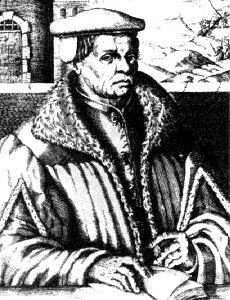
Thomas Münzer
- Fanatic reformer
- influenced early by Luther
- God speaks directly to Christians through visions and dreams
- early Anabaptist
- leader of Peasants' Revolt
- Murray, Andrew
- (1828-1917)
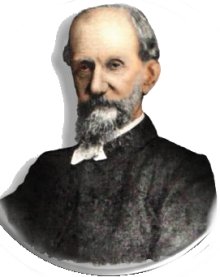
Andrew Murray
- Scottish
- became Dutch Reformed pastor in South Africa
- charismatic
- mystical theology
- Myconius, Oswald
- (1488-1552)
- Swiss Reformer
- friend of Erasmus
- MYSTIC
-
- A person who holds views of Mysticism
- MYSTICISM
-
- God is the ineffable One, transcendent, yet not absolutely Other.
- As Absolute Self, God is linked to the Real Self of individuals.
- "The soul finds God in its own depths" (Ruysbroeck)
- Knowledge of being "one with God" is directly experienced in intuition.
- To know God is to understand that He is, not what He is.


